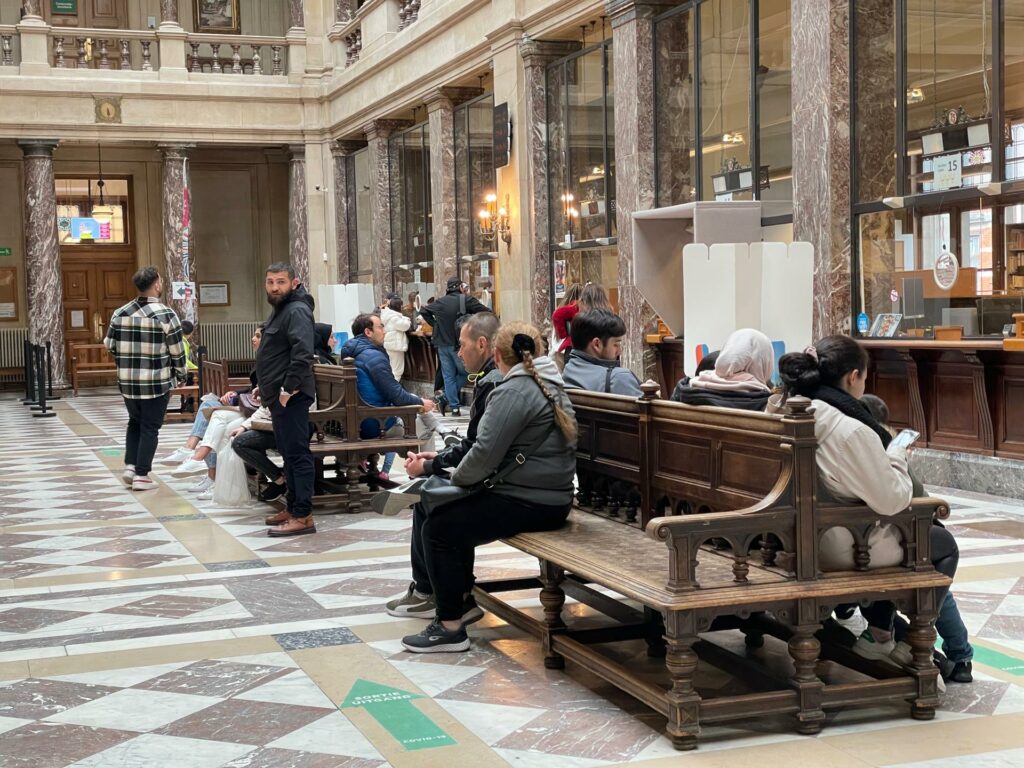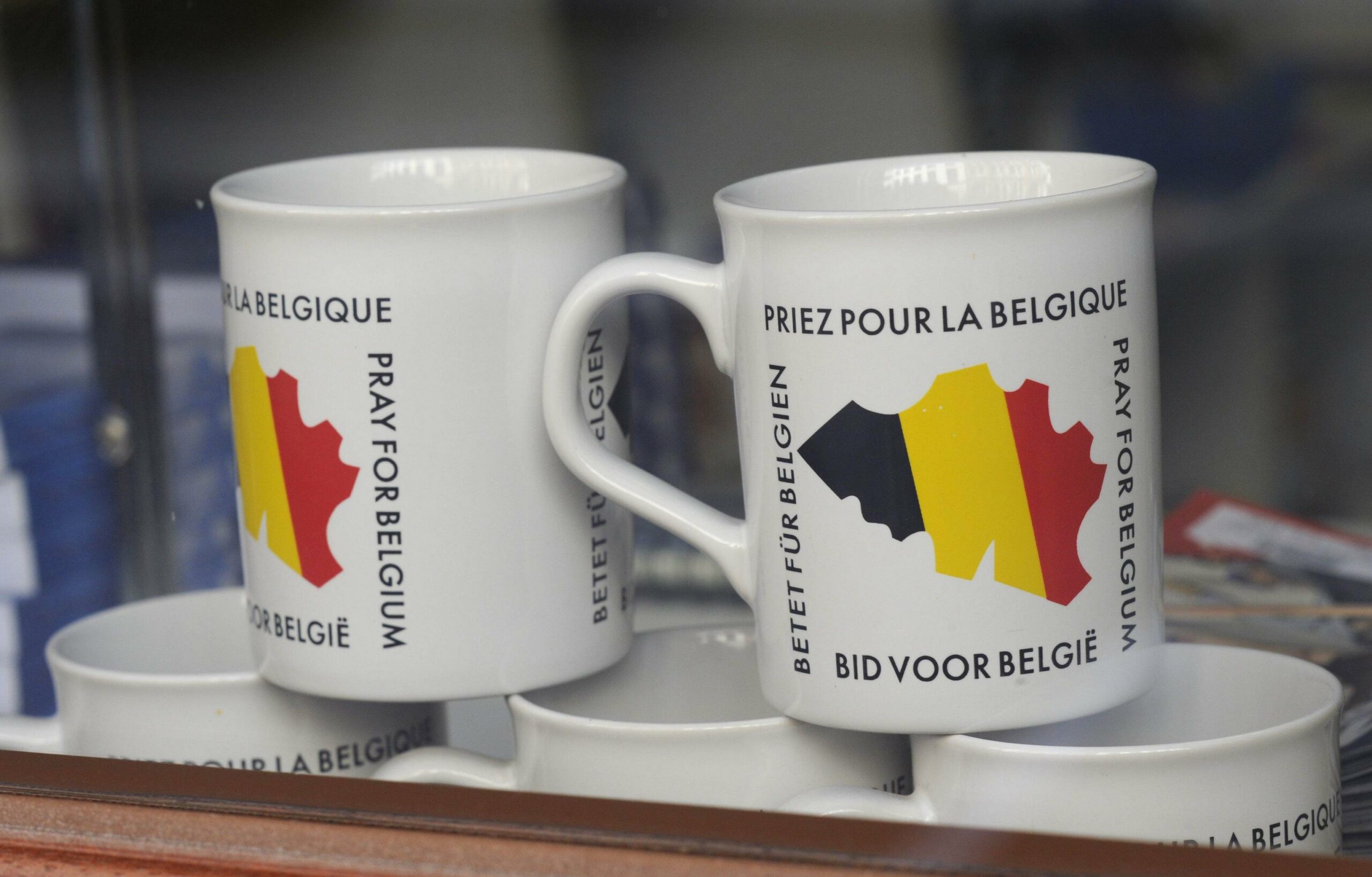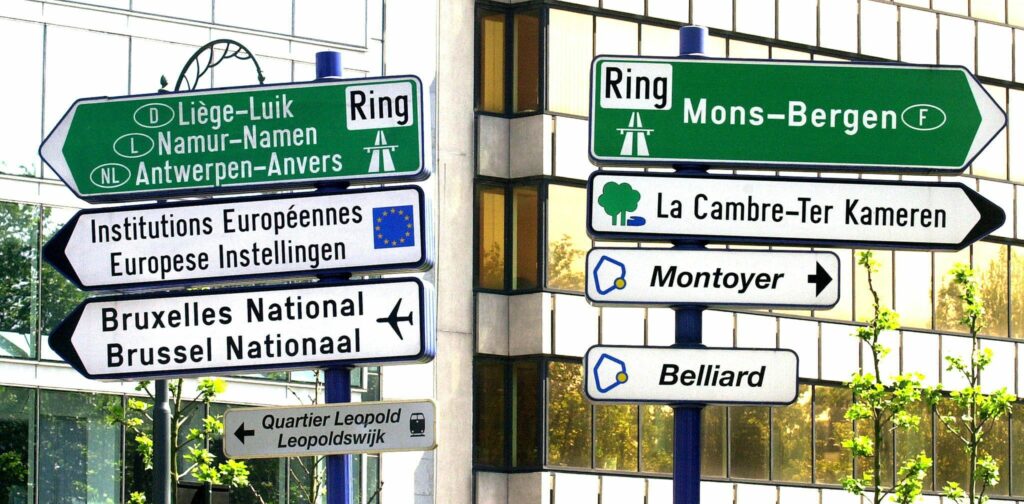English is increasingly bridging the language gap in an ever-changing, internationalised region bound by strict rules. Whether this trend will be – or should be – translated into law is another question.
Linguistic diversity in Brussels is skyrocketing. This has been reflected in the Vrije Universiteit Brussels' (VUB) Language Barometer for years. Importantly, residents are increasingly turning to English, as it is the second most widely-spoken language by Belgians and internationals alike.
"English was initially spoken by the youngest Brussels residents who learn it through school and media and use it in their social lives, but we are now seeing that it is increasingly used among older generations," VUB researcher Mathis Saeys told The Brussels Times.
These findings should be nuanced: the share of native English speakers is limited. "Instead, English is gaining importance as a common language, used in combination with French, Dutch and occasionally another language to bridge the gap."
This trend is not limited to Brussels: soon-to-be-released figures from languageknowledge.eu – a website visualising Europe's language knowledge statistics – show English is on its way to becoming Belgium's most widely spoken language (based on language skills, not share of native speakers). Among 15- to 34-year-olds, more than 60% indicated having 'good to very good knowledge' of English.
Outdated laws?
In 2024, 104 different languages were recorded in Brussels, but this underestimates reality. The data is based on a small sample of 1,600 people out of more than a million inhabitants, meaning hundreds more languages are spoken in Brussels.
"The problem here is not the language diversity, but the fact it does not go hand in hand with Brussels' multilingualism, which is lacking," philosopher Philippe Van Parijs told The Brussels Times. "There is a strong tension between the current reality and the language legislation."
Belgium's current language law, which dates back to 1966, regulates language use in administrative matters. The law states that the region's official languages are Dutch and French, and all Brussels administrations should communicate and offer services in both languages.

The city hall of Schaerbeek. Credit: Schaerbeek
"The principle that legitimises the legislation is that every Brussels citizen has the right to be served in their own language," Van Parijs noted. "It made sense when most Brussels residents were French- or Dutch-speaking Belgians – but not so much today."
The latest barometer showed that around 30% of adults in the region are not native Dutch or French speakers. Around 15% of Brussels residents, roughly 150,000 people, have only an elementary knowledge level. "So there is a huge gap between the legislation and its principles and the current reality in Brussels."
Officially English?
The rising use of English has long driven debates about weaving it into the administrative fabric of the region. A shift is happening unofficially. Some communes are translating their website pages, which is technically in violation of the law. Schaerbeek has even started offering municipal services in English to residents who do not speak French or Dutch.
Meanwhile, Brussels public transport operator STIB communicates in the official language, as well as English. Authorities both on the national and regional level are using English as a more neutral means of communication. Examples are the federal Tax-on-Web platform, and Brussels' various agencies such as perspective.brussels and visit.brussels.
The debate includes the question of making it an official administrative language in Brussels. However, an adaption of the language law is necessary, which is a federal competence. Outgoing Brussels Minister for Multilingualism Sven Gatz (Open VLD) has repeatedly called for this adaptation.
Saeys doubts it will become an official language, but acknowledges that "English will increasingly play a role as a common language, creating lenience for flexibility in combining languages."

Drinking mugs with the map of Belgium in the colours of the Belgian flag, and the sentence 'Pray for Belgium' in German, Dutch, French and English. Credit: Belga / Eric Lalmand
Van Parijs added that making English an official language is practically unfeasible. "This would mean all street names being written not only in Dutch and French but also in English. That would be absurd." He added that Dutch – the language in which Brussels was born – and French – the language in which Brussels became a capital – should continue to be prioritised.
Bottom-up progress
Van Parijs questions why the reimagining of language laws should focus solely on English. One in ten Brussels residents don't speak French, Dutch or English. "Why should some citizens have the right to be served in their native language and not others?"
He argued that this underscores the need to give up the principle, opening the door for a different type of legislation based on pragmatism. In his opinion, rigid rules should be relaxed to encourage the use of all languages.
"It should be possible to speak Spanish, German or Turkish if both the person offering a service and the person requesting it can speak those languages. Clerks who speak Arabic, for example, should not hide that, but make use of it." In Brussels' various police zones, this has been put into practice since 2009. Officers are encouraged to pass language tests with a bonus.
Van Parijs explained that the reform will likely become a reality in a bottom-up way. "We will see small evolutions and a creation of normalcy or common sense, and then eventually, the mindset will be there for a much-needed change in the law."

